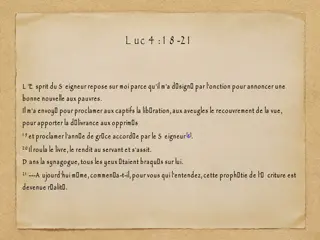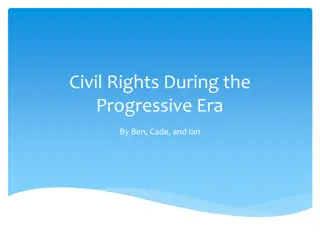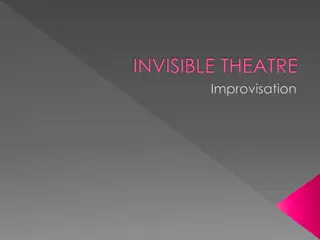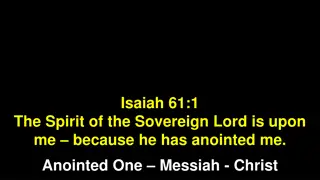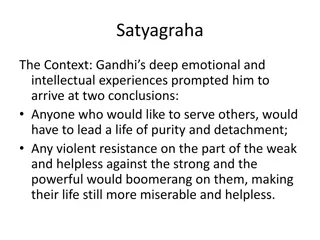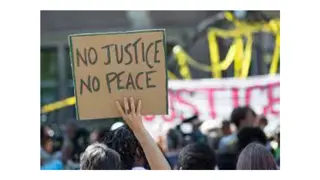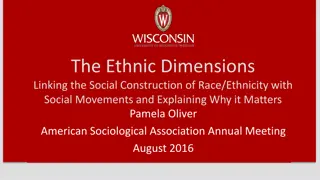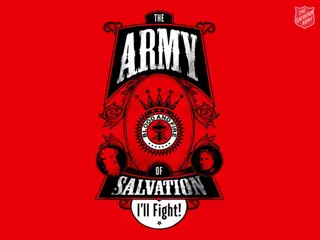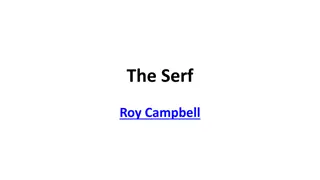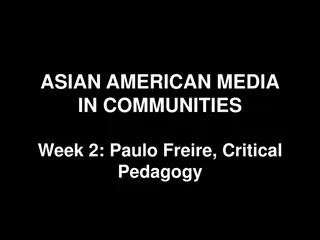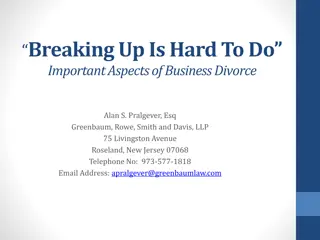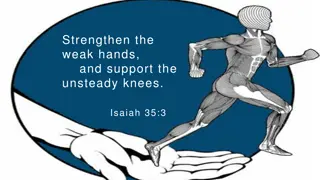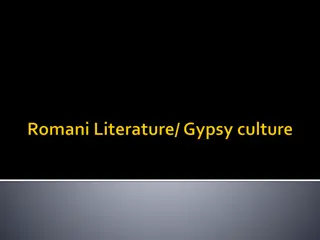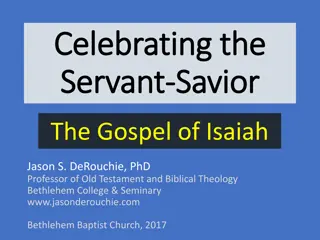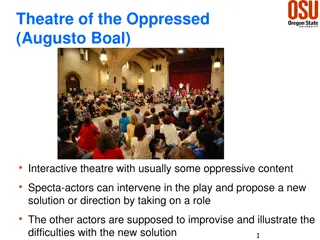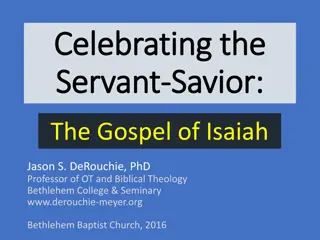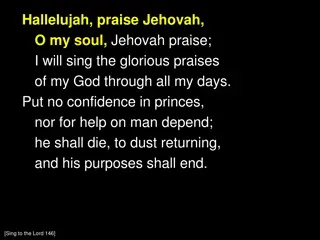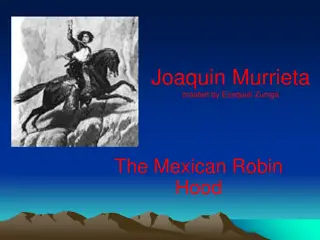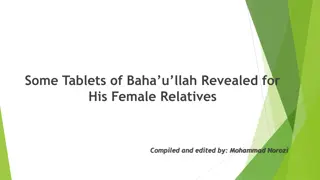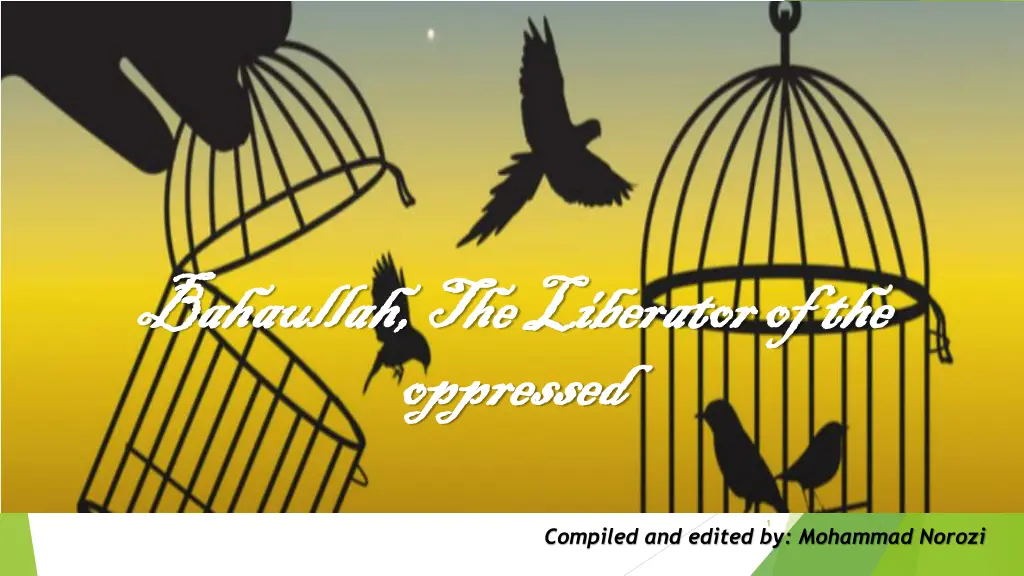
Stories of Ethiopian Slaves in the 19th Century Persia
Explore the poignant stories of Ethiopian slaves in 19th-century Persia, including accounts of Jamila Khanum, Bahrazain, Nur Sabbah, and Golchireh. These narratives depict the harrowing experiences of individuals captured, sold, and enslaved, shedding light on a dark chapter of history.
Download Presentation

Please find below an Image/Link to download the presentation.
The content on the website is provided AS IS for your information and personal use only. It may not be sold, licensed, or shared on other websites without obtaining consent from the author. If you encounter any issues during the download, it is possible that the publisher has removed the file from their server.
You are allowed to download the files provided on this website for personal or commercial use, subject to the condition that they are used lawfully. All files are the property of their respective owners.
The content on the website is provided AS IS for your information and personal use only. It may not be sold, licensed, or shared on other websites without obtaining consent from the author.
E N D
Presentation Transcript
Bahaullah, The Liberator of the Bahaullah, The Liberator of the oppressed oppressed 1 Compiled and edited by: Mohammad Norozi
In 1905, Jamila Khanum, an Ethiopian slave in Shiraz, wrote a letter summarizing her life as a slave. She wrote: My name is Jamila Habash , my father is Lul d-D n from S ho, my mother Losh bah, and from the Omar n ah tribe. I was enslaved when I was a child then was brought to Mecca where I was sold to a broker; the broker took me to Basra from the Jabal, and sold me to an Iranian broker named Mull Al , who shipped me from Basra to Muhammara and from there he took me to the Bushihr port and there he sold me to a merchant called H j M rz Ahmad K zirun who is in Shiraz now, I was his concubine for four years in Bushihr then H j took me to Shiraz and kept me there for five years; in total, I was with him for nine years and then he sold me to Nas ir Niz m the son of At u ll h. After one year, Nas r sold me to H j Muhammad Al Kh n. Now it has been five years that I have been with him. (Jamila s saga apparently begins in 1880. Quoted in Mirzai, Slavery, 72, from the statement of Jamila, 8 Shaww l 1323, File 2, Box 3, 1323, Center of Documents, Ministry of Foreign Affairs, Tehran.) 2
The story of two Ethiopian sisters, Bahrazain and Nur Sabbah, recounted by the former when she fled for refuge to the British consulate in Bushihr in 1892 is as follow : A person named Haji Ibrahim kidnapped me and took me along with pilgrims to Abu Rashid. There he sold me and my sister, Nur Sabbah, to Haji Abdullah, who died there. Both my sister and I then hired a camel and went to Zubair, where two persons called Rahim and Yusif appeared: the latter took my sister as his wife and deceived me and brought me to Bushire. They sold me . . . to Abdul Nabi through Aqa Reza Dallal. I work in the house of Abdul Nabi but am not properly looked after. I am beaten and get no clothes. I was originally free but have now been bought. (Quoted in Vanessa Martin, The Qajar Pact, p. 155. (Talbot to Lascelles, in No. 34, 13.2.1892, FO 248/543) 3
Golchireh was of Ethiopian origin and had been captured and enslaved as a child. Afnan recounts his personal memories of her as a servant in his parents home. He writes: I remember Gulchihrih distinctly. She was a tall, slender woman with an attractive face. She was jolly, talkative and very fond of the water pipe. She came to the house of my father to care for my mother, and she lived with us for many years until her death. Gulchihrih remembered her home and her childhood days in Africa. She would hold me on her lap and tell me about her life before she was taken as a slave. Not once was she able to finish her story without my breaking down and weeping for her. She would lovingly describe the wide, tree-lined avenues of her native town and the large home in which she lived. She would say: There was a brook running near our house where I would play with my brothers and sisters. 4
Cont Our parents warned us to beware of white men. One day, while playing with my friends, we spotted two camel riders approaching . As they drew near, the older children recognized who they were and fled. I could not keep up with them and was soon caught. One of them put a knife to my throat and threatened me. I dared not say a word. They took me away, and eventually I was shipped to Bushihr. She would describe her father and mother, and aunts and uncles, and the love that existed among them. She remembered also that she had a newborn brother who was very dear to her. (Afnan, Black Pearls, pp. 40-41) 5
My grandfather [Bahaullahs father] had many coloured maids and servants. When the Blessed Perfection [Baha u llah] became the head of the family He liberated all of them, and gave them permission to leave or stay, but if they desired to remain it would, of course, be in a different manner. However, all of them, revelling in their new found freedom preferred to leave, except Esfandayar [Isfandiyar], who remained in the household and continued to serve us with proverbial faithfulness and chastity. (Abdu l-Baha, Star of the West, volume 9 /April 28 1928 No. 3, P38) 6
I (i.e., Abdul-Baha) had a servant who was black; his name was Isfandiyar. If a perfect man could be found in the world, that man was Isfandiyar. He was the essence of love, radiant with sanctity and perfection, luminous with light. Whenever I think of Isfandiyar, I am moved to tears, although he passed away fifty years ago. He was the faithful servant of Baha u llah and was entrusted with His secrets. . . . For one month Isfandiyar went about in the streets and bazaars. He had things to sell, and from his earnings he gradually paid his creditors. In fact, they were not his debts but the debts of the court, for all our properties had been confiscated. Everything we had was taken away from us. The only things that remained were our debts. Isfandiyar paid them in full; not a single penny remained unpaid. Then he came to us, said good-bye and went away. . . . He was a point of light. (The Promulgation of Universal Peace, pp. 426 427) 7
such was the sterling faithfulness of Isfandiyar that, whenever I think of him, my eyes grow dim with tears. He was a King among men, a glorious star in the heaven of humanity. Although his face was black, his heart was as white as the snow. He was peerless and had no equal. I cannot sufficiently praise him. I loved him. He was a glory and a jewel on the crown of the coloured race. For his life was a noble record of proud achievements and the whole world will learn a lesson from him. (Abdu l-Baha, qtd. and provisionally translated (from the Persian original) in Diary Notes of Ahmad Sohrab (October 25, 1913, Ramleh, Egypt), Ahmad Sohrab Papers, Box 25, p. 29. Published by permission, courtesy of the National Baha i Archives, United States.) 8
Authorized translation of the prayer in which Bahaullah liberated Mubarak (one of the slaves of His father Mirza Buzurg). Glorified art Thou, O Lord my God! Behold how one slave hath stood at the door of another, seeking from him his freedom, and this despite the fact that his owner is himself but Thy thrall and Thy servant, and is evanescent before the revelations of Thy supreme Lordship. I testify at this moment, as I stand before Thee, to that which Thou didst testify to Thyself by Thyself, that verily Thou art God and there is none other God but Thee. From everlasting Thou hast inhabited the loftiest heights of power, might and majesty, and wilt, to everlasting, continue to abide in the sublimity of Thy glory, awe and beauty. All kings are as vassals before the gate of Thy grace, the rich are but destitute at the shore of Thy sacred dominion, and all great ones are but feeble creatures within the court of Thy glorious bounty. How, then, can this thrall claim for himself ownership of any other human being? Nay, his very existence before the court of Thy might is a sin with which no other sin in Thy kingdom can compare. Glorified, immeasurably glorified, art Thou beyond every description and praise. 9
Cont.. O my God! Since he hath asked this servant for his freedom, I call Thee to witness at this moment, that I verily have set him free in Thy path, liberated him in Thy name, and lifted from his neck the shackles of servitude, that he may serve Thee in the daytime and in the night-season, whilst I pray that Thou mayest never free mine own neck from the chain of Thy servitude. This verily is my highest hope and supreme aspiration, and to this Thou Thyself art a mighty witness. (Baha u llah, translated by the Universal House of Justice, from a letter to an individual Baha i, September 2, 2014) 10
Bahaullahs Tablet to Masud (served Bah'u'llh in Acre): Verily, before the one true God, they who are the rulers and lords of men and they that are their subjects and vassals are equal and the same. The ranks of all men are dependent on their potential and capacity. Witness unto this truth are the words, In Truth, they are most honored before God who are most righteous. (Baha u llah, qtd. in Black Pearls, p. 39) 11
We have been informed that thou hast forbidden the trading in slaves, both men and women. This, verily, is what God hath enjoined in this wondrous Revelation. (The Summons of the Lord of Hosts, p. 89) 12
In a Tablet revealed in honour of Khadijeh Bagom, after her death, Baha u llah recognizes her as a holy woman and also beatifies Fezzeh Khanom (her devoted servant): O thou who art the fruit of the Tree of My Life [Khadijeh Bagom]! Thy tribulations have caused the ocean of sorrow to surge and the breezes of forgiveness to waft. I testify that, as a blessing and bounty on Our part to thee, God hath forgiven every servant and maidservant who ascended [died] on the eve or the day of thine ascension to the Abh Horizon, the Exalted Paradise, save for those who have denied his rights and rejected what hath been manifested from Him to all men. Thus hath God chosen thee, O My Leaf, for this most great bounty and this foremost and primal rank. 13
It is forbidden you to trade in slaves, be they men or women. It is not for him who is himself a servant to buy another of God s servants, and this hath been prohibited in His Holy Tablet. Thus, by His mercy, hath the commandment been recorded by the Pen of justice. Let no man exalt himself above another; all are but bondslaves before the Lord, and all exemplify the truth that there is none other God but Him. He, verily, is the All-Wise, Whose wisdom encompasseth all things. (Baha u llah, The Most Holy Book, p. 45) 14

